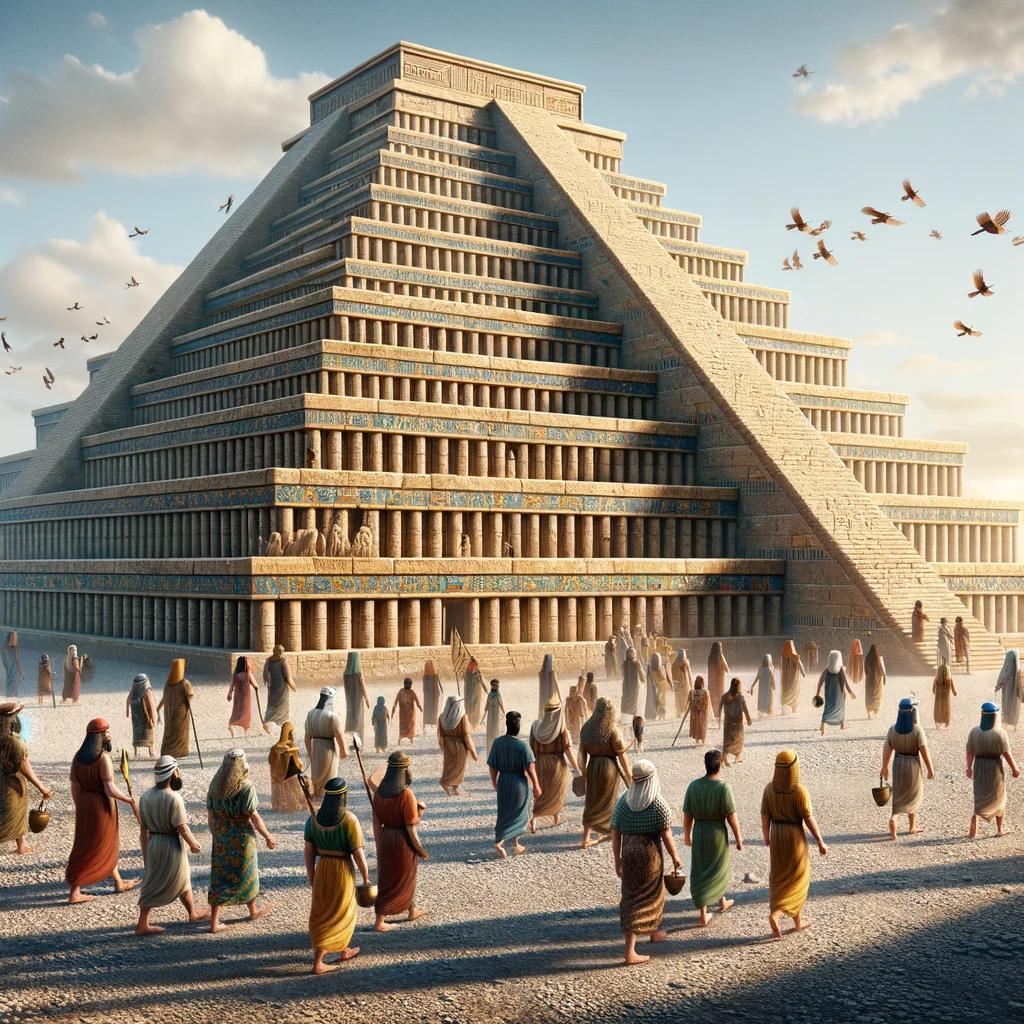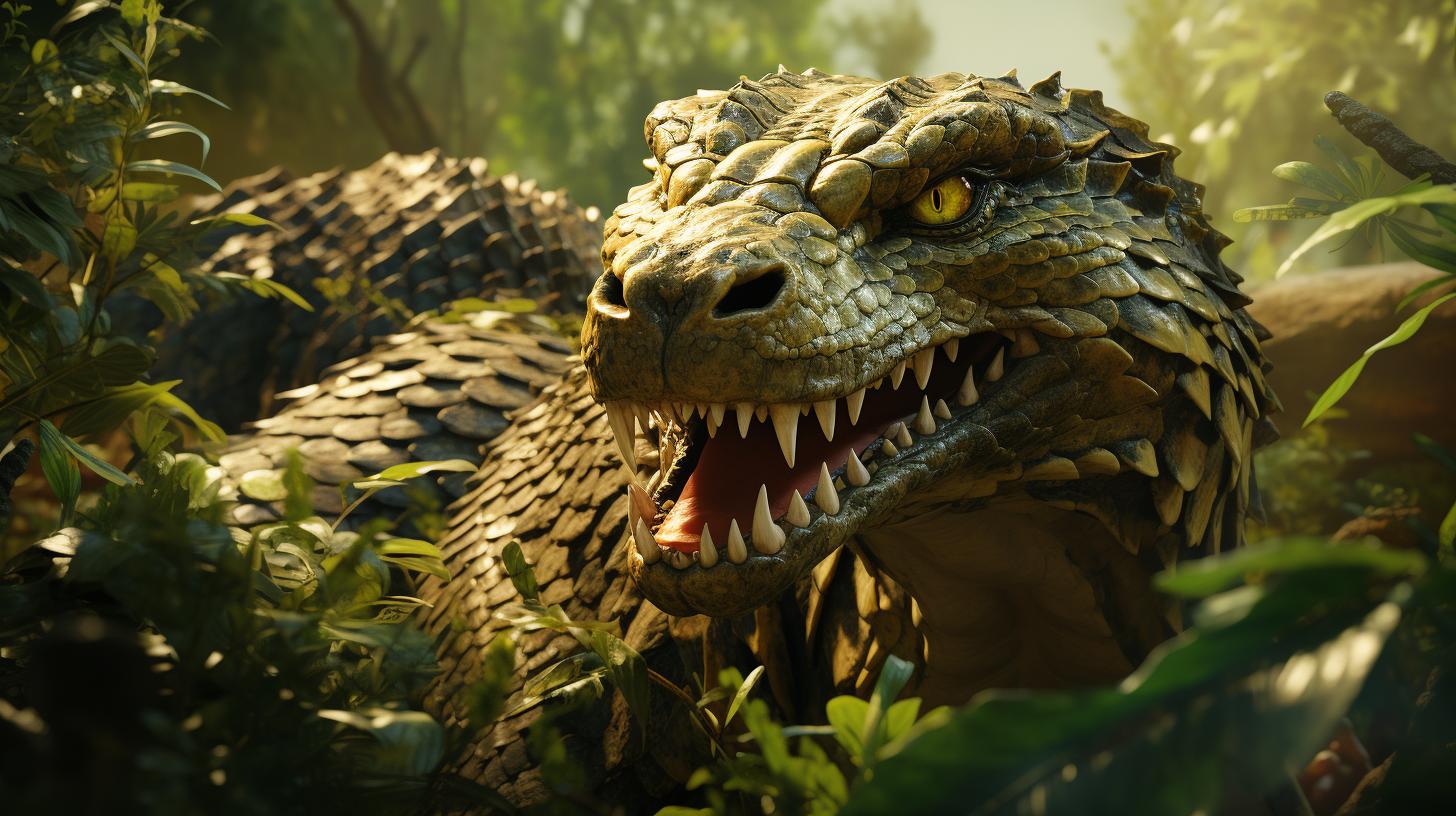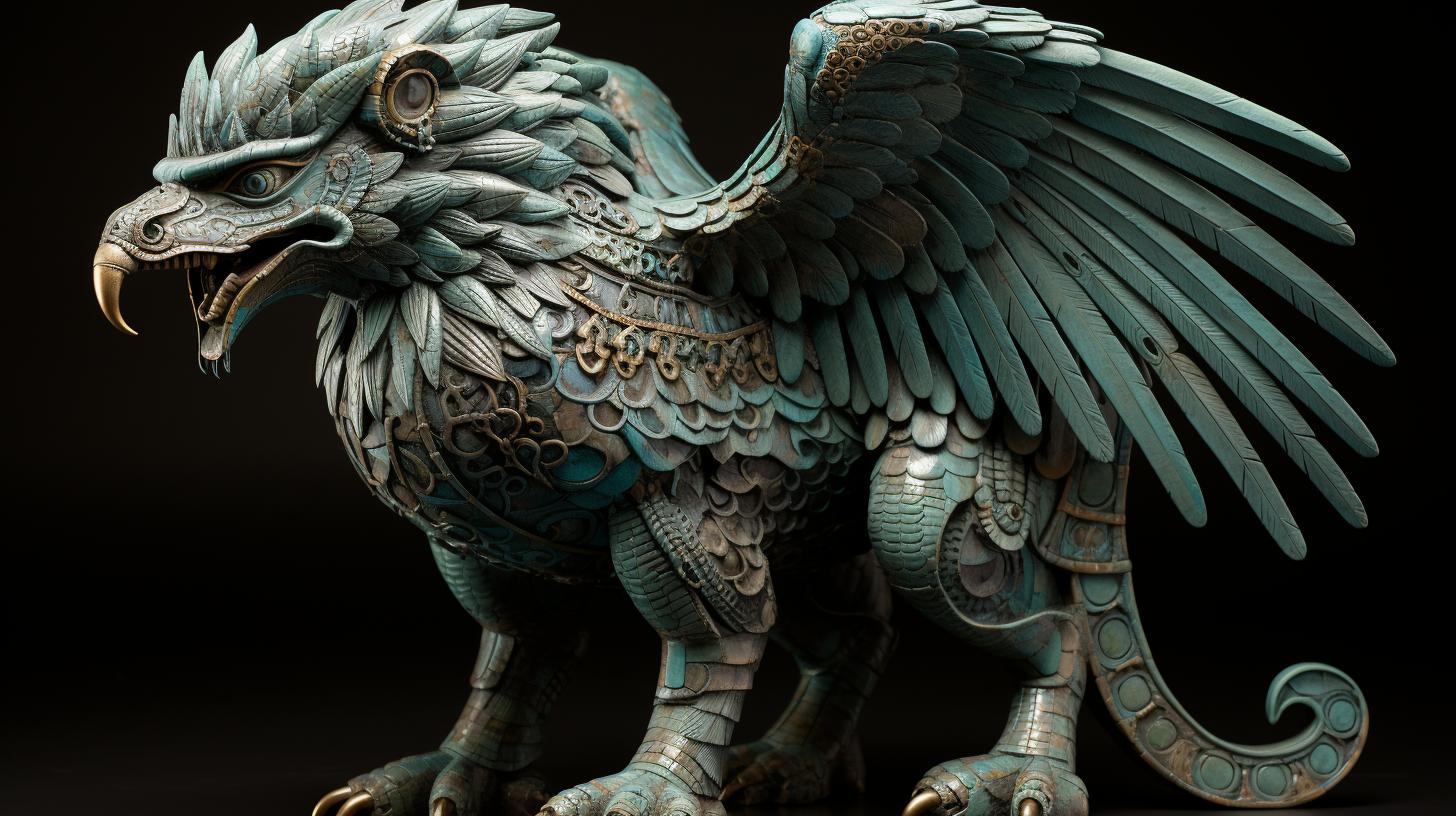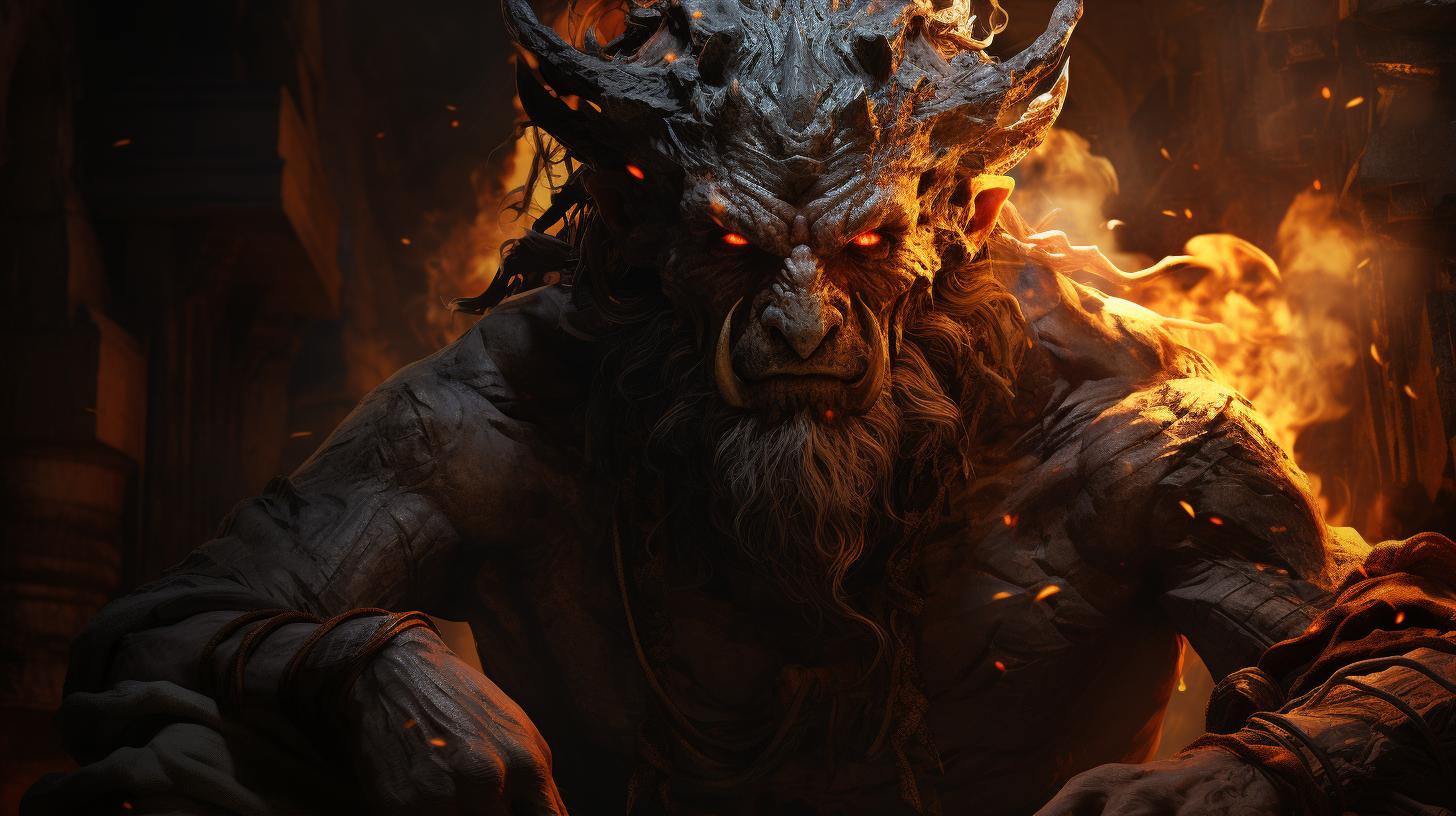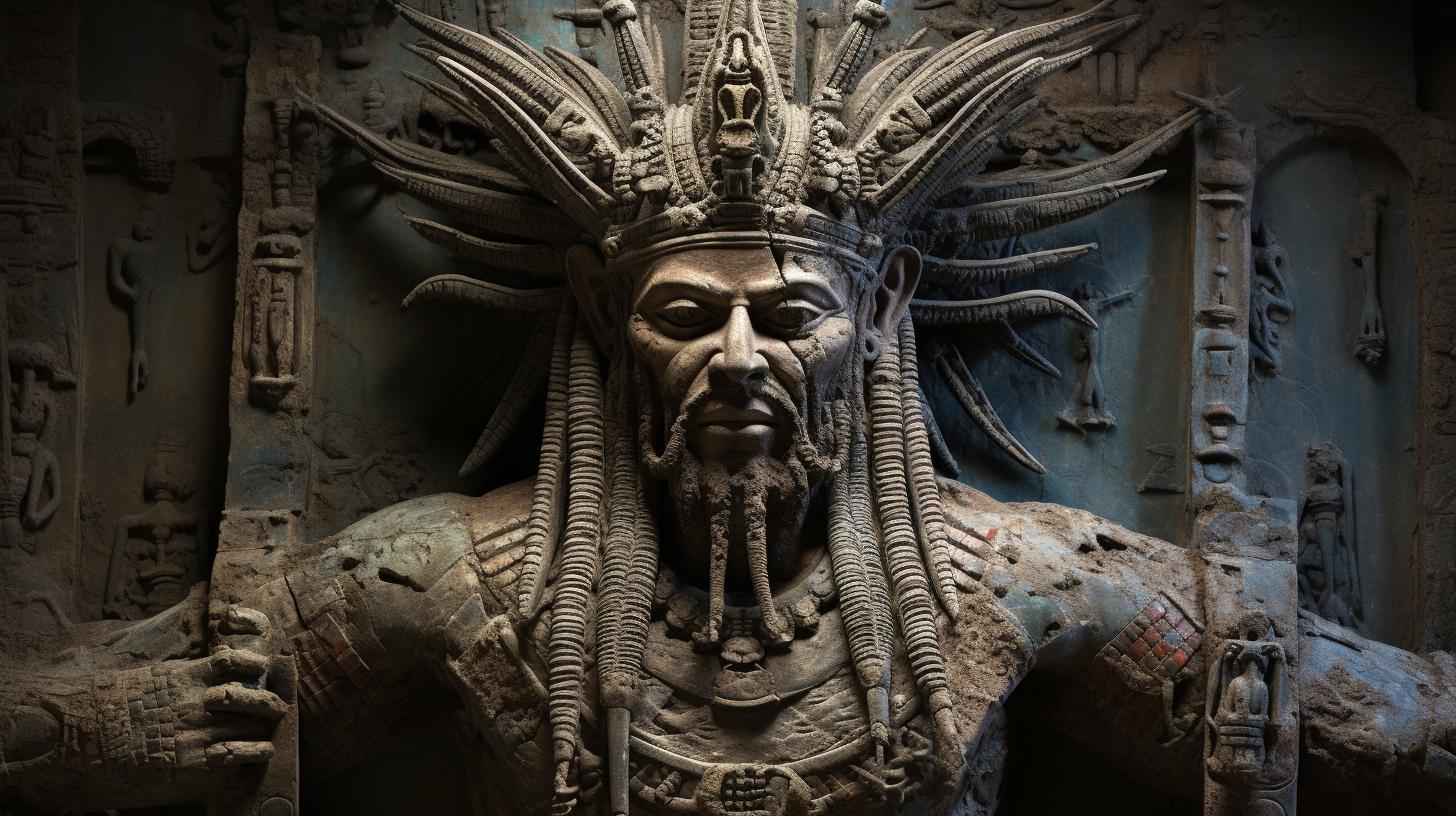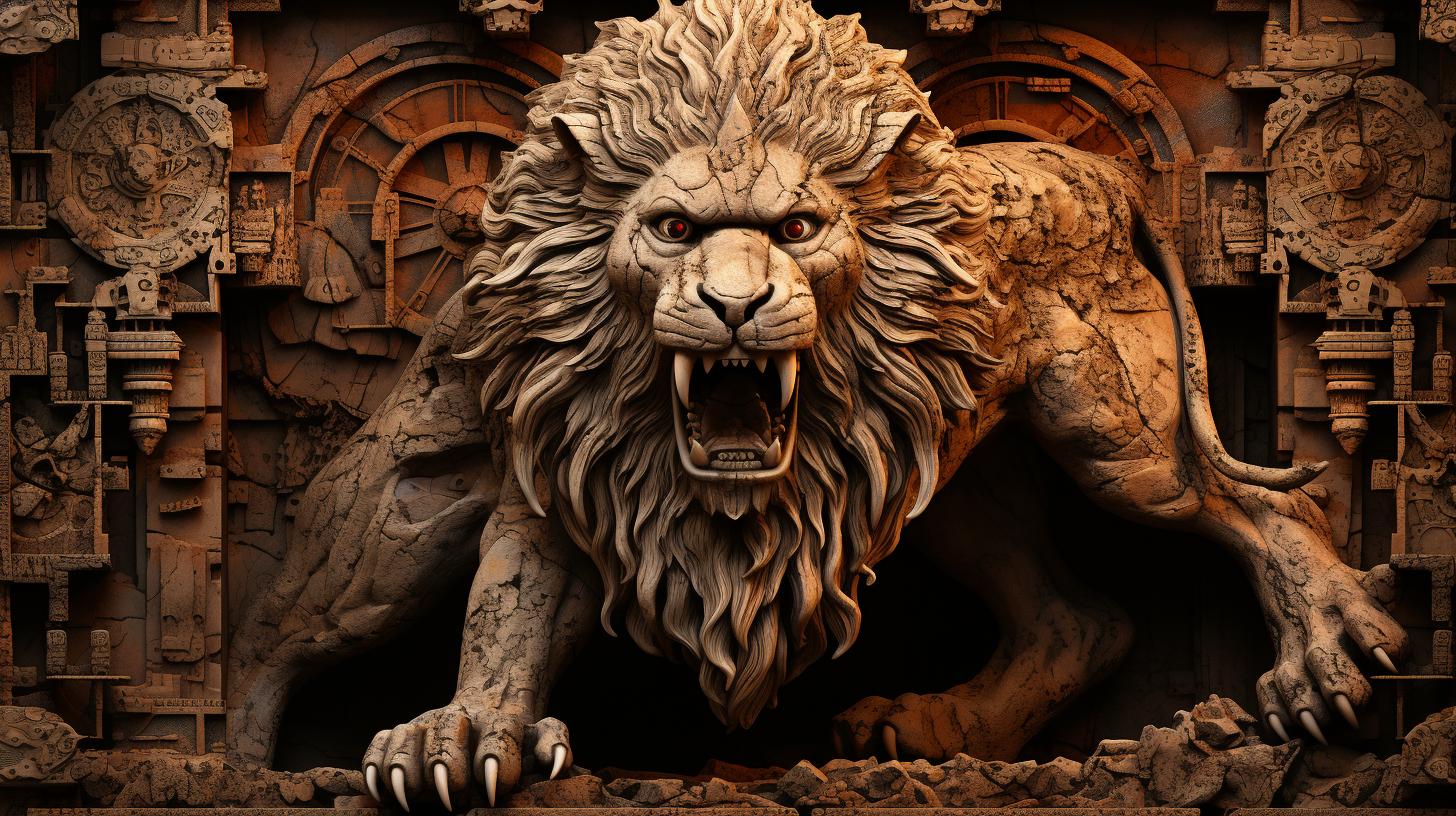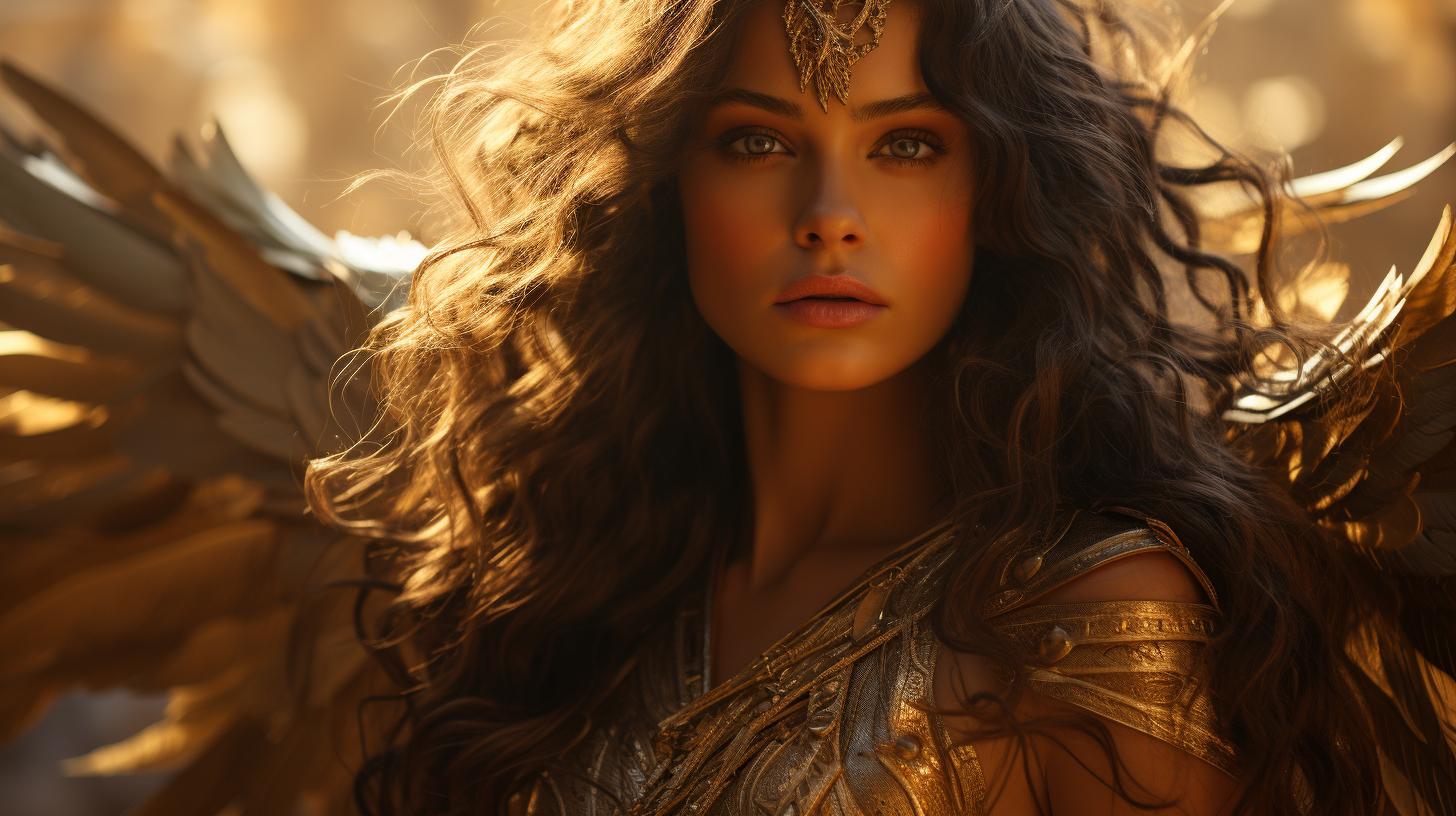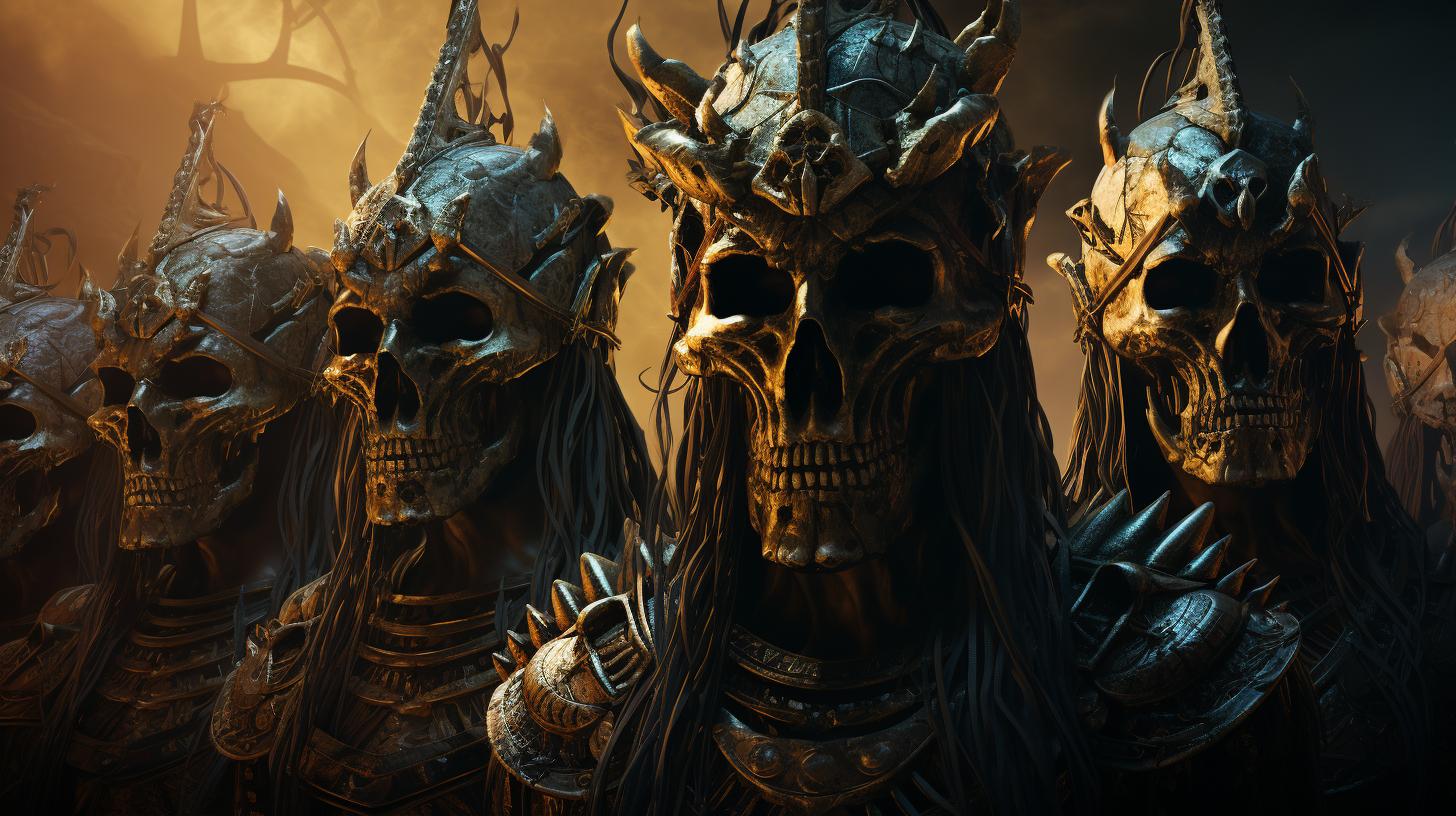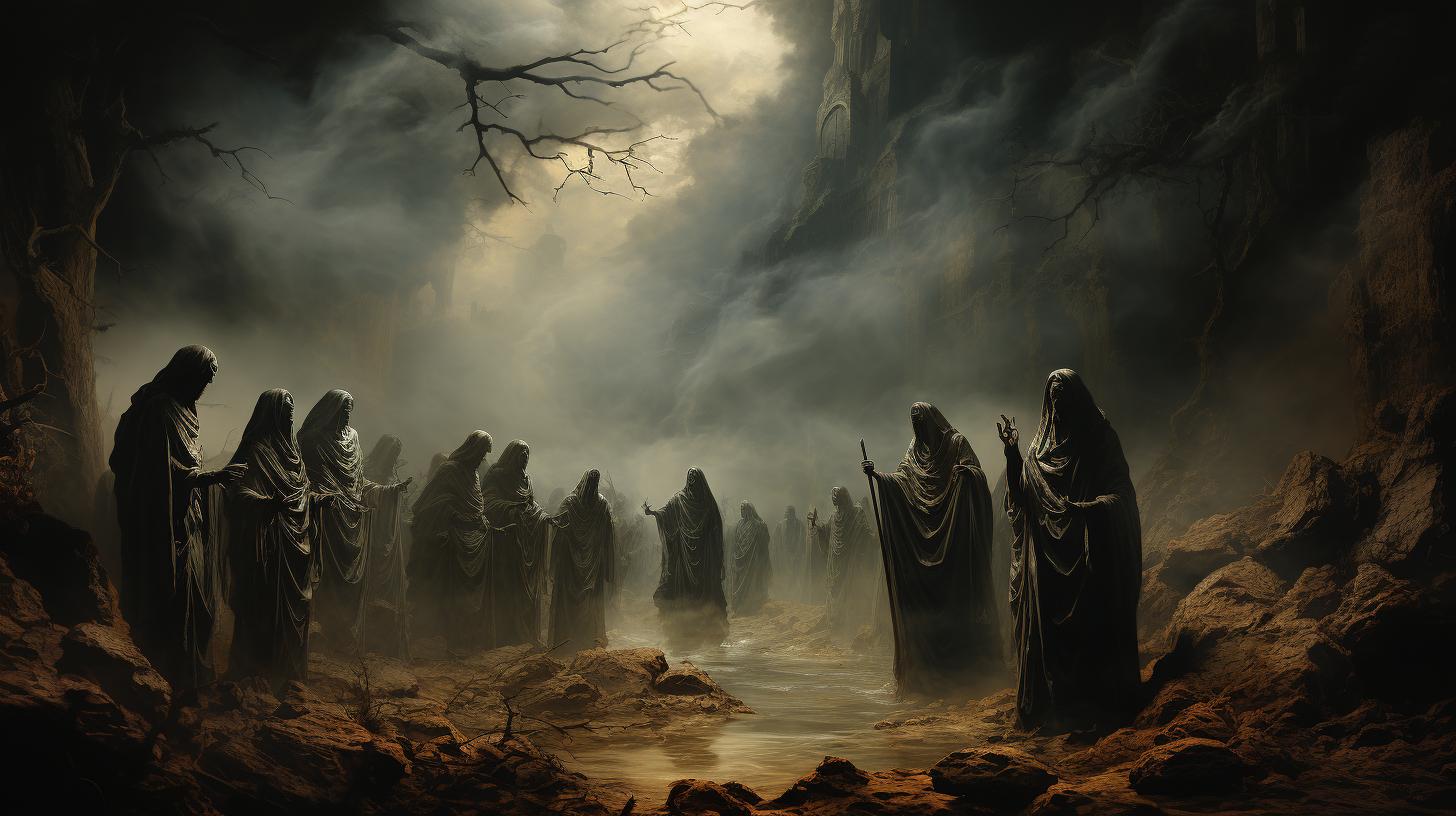Ancient Mesopotamian Myths and Legends: Exploring the Mysteries of a Lost Civilization
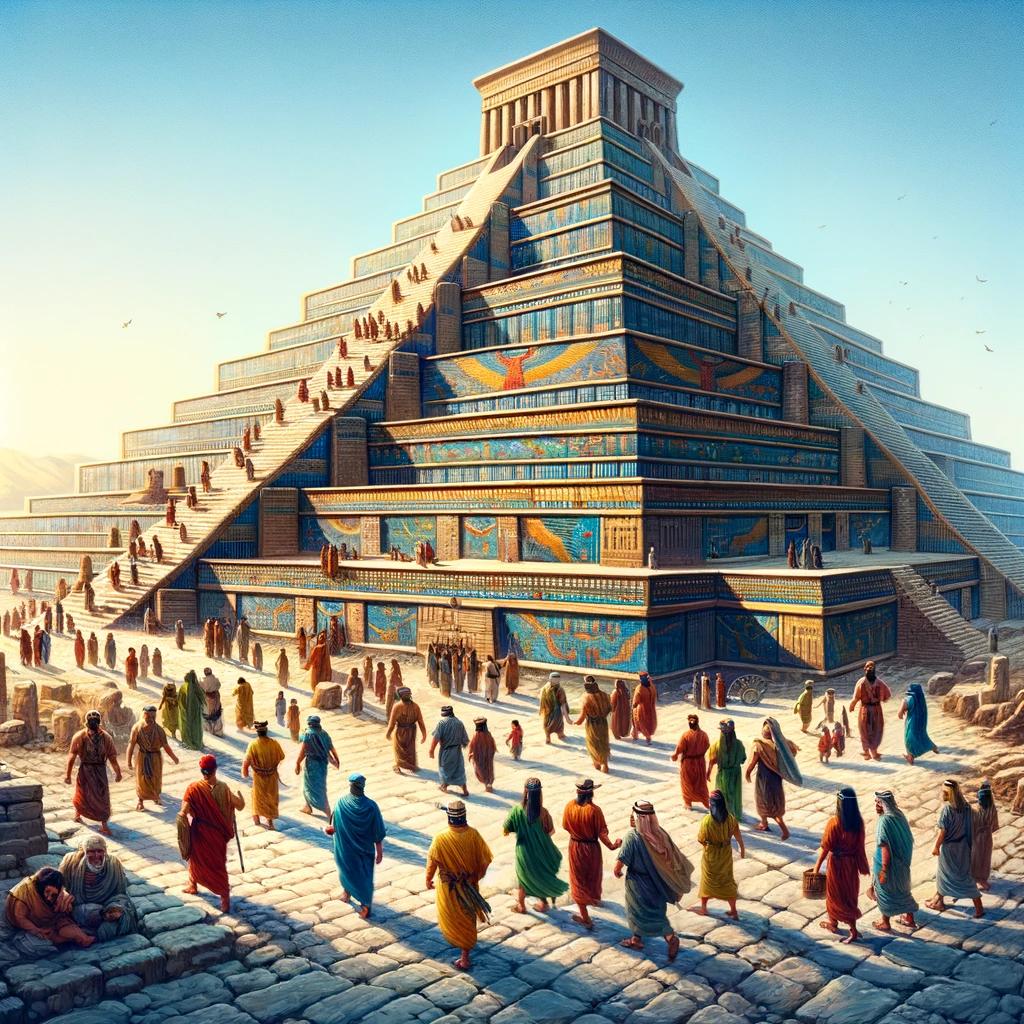
Ancient Mesopotamian Myths and Legends offer intriguing insights into the rich civilization of Mesopotamia. From epic creation tales like Enuma Elish to the heroic exploits of figures like Marduk and Gilgamesh, these myths and legends provide a window into the beliefs and rituals of this ancient society.
Explore the diverse pantheon of Mesopotamian deities and the captivating stories that have endured for millennia. Uncover the influence of these myths on ancient cultures and their continuing relevance in literature and popular culture today.
Delve into the legacy of Mesopotamian myths and embark on a captivating journey through history and mythology.
Mesopotamian Creation Myths
Mesopotamian creation myths provide fascinating insights into the origins of the ancient civilization. Through epic tales, such as Enuma Elish, the myth of Adapa, and the Babylonian creation myth, we encounter intricate narratives that unravel the mysteries of the universe and the creation of humanity.
Enuma Elish: The Epic Tale of Creation
Enuma Elish stands as one of the most significant Mesopotamian creation myths. This myth recounts the story of the divine battle between Marduk, the supreme god of Babylon, and Tiamat, the chaos dragon and mother goddess.
Marduk’s victory over Tiamat results in the creation of the world and the establishment of Marduk as the chief deity in the Babylonian pantheon. Enuma Elish offers cosmological explanations and showcases the Mesopotamian beliefs in the divine order and the role of gods in shaping the world.
Myth of Adapa: The Story of Humanity’s Creation
The myth of Adapa sheds light on the creation of humanity. Adapa was a wise and skilled priest who angered the gods by mistakenly refusing the gift of immortality.
This myth explores themes of mortality, human limitations, and the complex relationship between gods and humans in Mesopotamian society. It delves into the origins of human intelligence, civilization, and the consequences of human encounters with divine beings.
Babylonian Creation Myth: Exploring the Birth of the Universe
The Babylonian creation myth provides insight into the birth of the universe and the establishment of order. This myth portrays the primordial waters and the emergence of the god Ea, who brings stability and harmony to the chaotic cosmos.
It highlights the significance of divine creativity and the divine mandate in creating and maintaining the cosmic and earthly realms. The Babylonian creation myth presents a complex cosmogony that influenced the religious and cultural beliefs of ancient Mesopotamia.
Deities and Heroes in Mesopotamian Mythology
Delve into the captivating world of Mesopotamian mythology and explore the fascinating deities and heroes that shaped this ancient civilization. From the supreme god of Babylon to the first superhero of Sumerian mythology, these powerful characters played significant roles in Mesopotamian folklore and religious beliefs.
Marduk: The Supreme God of Babylon
Marduk takes center stage as the all-powerful deity in Babylonian mythology. According to ancient tales, Marduk rose to prominence after a mighty battle against the goddess Tiamat. This epic battle, known as the Enuma Elish, reveals Marduk’s journey to becoming the chief god of the Babylonian pantheon.
By utilizing Tiamat’s remains to craft the world, Marduk solidifies his divine status and becomes the ultimate symbol of power and authority.
Gilgamesh: The First Superhero of Sumerian Mythology
Step into the incredible adventures of Gilgamesh, often hailed as the first superhero in Sumerian mythology.
The renowned epic, Gilgamesh, recounts the extraordinary quests undertaken by this heroic figure. From battling the fearsome Humbaba, the guardian monster of the Cedar Forest, to his relentless pursuit of immortality, Gilgamesh demonstrates his unmatched strength and bravery.
His legendary feats continue to captivate audiences across the ages, making Gilgamesh an enduring symbol of heroism.
Inanna and other Mesopotamian Gods and Goddesses
Explore the pantheon of Mesopotamian gods and goddesses, with Inanna standing out as one of the most revered and complex deities. As the goddess of love, beauty, and warfare, Inanna holds significant importance in Mesopotamian mythology.
However, she is not alone. Numerous other gods and goddesses, such as Enki, Ninurta, and Ishtar, play essential roles in the intricate tapestry of Mesopotamian beliefs. Delve into their divine personas and discover the myths and legends intertwined with their identities.
Epic Tales and Legends
Welcome to the realm of epic tales and legends from ancient Mesopotamia. Within these captivating narratives, you’ll witness the heroic quests, mythical battles, and everlasting pursuit of immortality.
Adventures of Gilgamesh: Quests, Battles, and Pursuit of Immortality
The Adventures of Gilgamesh, the legendary king of Uruk, will transport you to a world where gods and mortals collide.
Follow Gilgamesh as he embarks on perilous quests, taking on formidable foes and facing his own mortality. Discover the story of the cedar forest battle against the monstrous Humbaba, and witness Gilgamesh’s relentless pursuit of eternal life.
Atra-Hasis: The Mesopotamian Flood Myth
Delve into the Mesopotamian Flood Myth, a tale that predates the biblical story of Noah’s Ark. The narrative of Atra-Hasis recounts how the gods decided to send a catastrophic flood to punish humanity.
Witness the construction of the massive ark and the survival of Atra-Hasis amidst the destruction, offering an intriguing perspective on ancient views of divine punishment and salvation.
Enmerkar and the Lord of Aratta: The Story of Cultural Exchange
Experience the tale of Enmerkar and the Lord of Aratta, a legendary story showcasing the exchange between two distant cities.
Explore the intrigue, diplomacy, and rivalry as Enmerkar, the ruler of Uruk, strives to establish trade and cultural ties with the Lord of Aratta. Unravel the challenges faced by Enmerkar and the fascinating interactions between these ancient civilizations.
Immerse yourself in these epic Mesopotamian tales, where gods interact with mortals, heroes face unimaginable challenges, and the quest for immortality takes center stage. These narratives not only offer entertainment but also provide invaluable insights into the beliefs, values, and imagination of ancient Mesopotamian society.
Rituals and Beliefs in Mesopotamian Mythology
Discover the fascinating rituals and beliefs that were integral to Mesopotamian mythology. The ancient Mesopotamians had a deep connection with their gods and performed various religious practices to honor and appease them.
Religious Practices and Offerings to the Gods
The Mesopotamians believed in the importance of rituals and offerings to maintain a harmonious relationship with their deities. They conducted elaborate ceremonies in temples, offering food, drink, and valuable items to the gods as a sign of reverence and devotion.
These offerings were believed to please the gods and ensure their support and protection for the community. They also conducted regular prayers and performed rituals to seek divine guidance and assistance in various aspects of life, including health, fertility, and success in war and agriculture.
The religious practices of the Mesopotamians were complex and involved a hierarchy of priests and priestesses who performed specific roles in temple ceremonies. These religious officials were responsible for preserving ancient traditions, interpreting omens, and communicating with the gods on behalf of the people.
The Role of Divination and Astrology in Mesopotamian Society
Divination and astrology played a significant role in Mesopotamian society, as they believed that the gods communicated through signs and symbols. Diviners, known as bāru, interpreted omens and performed divinatory rituals to predict the future and seek guidance from the gods.
Astrology, on the other hand, was used to study the movements and alignments of celestial bodies to gain insights into important events and determine favorable times for various activities, such as planting crops or conducting military campaigns.
Astrologers, known as ashipu or ašipu, observed the sky and recorded celestial phenomena to make predictions and provide advice to rulers and individuals. The Mesopotamians believed that the position of the stars and planets influenced human affairs and could reveal their destiny.
These practices were deeply intertwined with the daily life of the Mesopotamians, shaping their decisions, rituals, and understanding of the world.
Influence of Mesopotamian Myths and Legends
The ancient myths and legends of Mesopotamia have had a profound impact on the cultures of the ancient Near East and continue to influence literature and popular culture today.
Impact of Mesopotamian Mythology on Ancient Near Eastern Cultures
The rich mythology of ancient Mesopotamia played a significant role in shaping the beliefs, rituals, and practices of neighboring cultures.
The stories, such as Enuma Elish and the myth of Adapa, spread across the region, influencing religious ceremonies, cosmology, and even legal codes. The pantheon of Mesopotamian gods and heroes, including Marduk and Gilgamesh, became revered in the wider region, and their tales were often incorporated into the religious practices of neighboring societies.
Contemporary References to Mesopotamian Mythology in Literature and Popular Culture
The enduring legacy of Mesopotamian myths and legends can be seen in various contemporary forms of storytelling. The epic of Gilgamesh, for example, has been adapted into novels, graphic novels, and even films, resonating with audiences worldwide.
References to Mesopotamian deities, such as Inanna, Ishtar, and Ninurta, can be found in modern literature, art, and even video games. The symbolism and themes of ancient Mesopotamian mythologies continue to captivate the imaginations of artists, writers, and creators, attesting to their ongoing relevance in popular culture.
The ancient Mesopotamian myths and legends have left a profound impact on human civilization, shaping various aspects of culture, art, and religion. The fascinating tales, filled with gods, heroes, and epic adventures, have continued to capture the imagination of people throughout history.
These ancient narratives have not only entertained but also influenced the way we perceive the world and our place in it.
Legacy of Mesopotamian Myths and Legends
The legacy of Mesopotamian myths and legends can be seen in the foundational elements of storytelling and mythology in different cultures. The epic of Gilgamesh, for example, bears striking resemblances to later works such as the biblical story of Noah and the Flood.
This highlights the enduring impact of Mesopotamian mythology on subsequent literary traditions and their themes of heroism, quests, and moral dilemmas.
Furthermore, Mesopotamian myths provided a basis for religious beliefs and practices that extended beyond the ancient civilization.
Many deities worshipped in Mesopotamia, such as Ishtar (Inanna) and Marduk, were later incorporated into the pantheons of other cultures in the region, showcasing the widespread influence of Mesopotamian religious concepts.
Cultural and Artistic Influence
- The depiction of mythical creatures, gods, and heroes in Mesopotamian art has influenced artistic representations in subsequent cultures. Elements of Mesopotamian art can be observed in later civilizations, such as Ancient Greece and Ancient Rome.
- Mesopotamian motifs and symbols are seen in architectural structures, pottery, and jewelry, showcasing the lasting impact of their mythology on visual arts.
Religious Practices and Rituals
- The religious rituals and practices of the ancient Mesopotamians, including offerings to the gods and divination, have served as a foundation for religious customs in subsequent civilizations.
- Elements of Mesopotamian ritual practices, such as temple structures and religious ceremonies, can be traced through various ancient cultures, emphasizing the enduring legacy of Mesopotamian religious beliefs.
Continued Exploration of Mesopotamian History and Mythology
Despite the passage of time, the exploration of Mesopotamian history and mythology remains an ongoing endeavor.
Archaeological discoveries and scholarly research continually provide new insights into the ancient civilization’s myths, beliefs, and societal structures.
Scholars and enthusiasts alike continue to delve into the texts, artifacts, and oral traditions connected to Mesopotamian myths and legends, expanding our understanding of this ancient culture and its contributions to human history.
The exploration of Mesopotamian history and mythology also involves deciphering ancient languages like Sumerian and Akkadian. These linguistic studies help unlock a wealth of knowledge preserved in cuneiform tablets and other ancient writings, allowing us to gain a deeper comprehension of the people and their beliefs.
With each new discovery and interpretation, the exploration of Mesopotamian history and mythology reveals a captivating world that continues to intrigue and inspire us in the present day.
.

